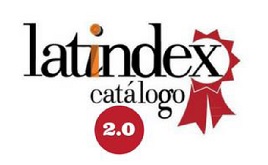Accounting policies as management tools and their effects on expected results
DOI:
https://doi.org/10.53641/junta.v3i2.55Keywords:
Accounting policies, tools to avoid mistakesAbstract
In this research work, it has been shown that every public institution has defined accounting policies, which constitute appropriate tools for management in order to achieve its objectives that are finally reflected in the results obtained.
It is also shown that, although it is true, the existence of defined policies, constitute the basis for the achievement of objectives, it is also true that their effects in terms of the results expected of said entities, depends a lot on the real understanding of the itself and its application by those responsible for its management.
Due to the above, this research aims to make a generic and explanatory analysis of the needs that led to the generation of accounting policies, in such a way that those who have the responsibility of their interpretation and application in the pursuit of the objectives of public institutions achieve consensus on them. in such a way that they become true management instruments for obtaining optimal results that the population as a whole expects from them.
By virtue of the nature of the research, the study is of an explorative or descriptive type, under a non-experimental design and with regard to research procedures and techniques; to data collection.
It was established that accounting policies have normative origin of specialty and application to specific areas but that nevertheless there are personal or institutional assessments that are adopted under the modality of criteria which do not always coincide or do not always reflect the spirit of the policies for which were created.
Research on accounting policies seeks to obtain a positive result because these as a management instrument in every public entity are necessary and indispensable, but it must be established that in order to obtain the expected results, the human potential that administer interpret and apply.
Its development and dissemination of this research topic will contribute to those who have the responsibility of directing a public entity as executives, as well as to professional groups that house professionals who provide their services in public management, by ensuring their integrity. professional.
Downloads
References
Barroso Rodriguez, C. (s/a). Políticas contables aplicables al sector público en Honduras, Introducción 1. Políticas Generales.
Bueno Martínez, G. (1972). El materialismo filosófico. Ensayos Materialistas Taurus Ediciones, S. A.
Bueno, G. (2002). Mundialización y Globalización. El Catoblepas. Revista crítica del presente. 3(2).
Casación N° 11111 – 2016. Corte suprema de justicia de la república (2016).
Centro Nacional de Planeamiento Estratégico [CEPLAN]. Políticas nacionales.
COSO Committe of Sponsoring Organizations of the Treadway Commission [Comité de Organizaciones Patrocinadoras de la Comisión Treadway]. (2013). Pilares Consultores SRL.
Decreto Supremo No 056-2018-PCM, que aprueba la Política General de gobierno al 2021 (2018).
Decreto Legislativo No 1438. Que aprueba el Sistema Nacional de contabilidad (2018).
Expediente No 0001-2018-PIITC. Tribunal Constitucional (2018).
León Huayanca, N.M. (2017). Las normas internacionales de información financiera y su incidencia en la determinación del impuesto a la renta. Problemática del devengado. (Trabajo de investigación para optar al Grado Académico de Maestro en Tributación y Política Fiscal, Universidad de Lima, Lima, Perú).
Letelier Wartenberg, R. (2011). La Justicia Constitucional en el pensamiento de Jürgen Habermas. Estudios constitucionales, 9(2), 377 - 394.
Ley N° 27785. Ley Orgánica del Sistema Nacional de Control y de la Contraloría General de la República (2002).
Ley No 28708. Ley general del Sistema Nacional de Contabilidad (2006).
Ley N° 28716. Ley de control interno de las entidades del estado (2006).
Ley N° 29158, Art. 4°, numeral 1, de la Ley Orgánica del Poder Ejecutivo- Facultades para normar las políticas nacionales (2007).
Martínez Sánchez, A. (2005). Un nuevo orden mundial, una nueva ética universal, una nueva educación. Enseñanza, 23, 237-255.
Martínez Sánchez, A. (1983). Dimensiones del espacio didáctico. Reflexión didáctica en torno a una realidad educativa. Enseñanza & Teaching: Revista interuniversitaria de didáctica, 1, 31-56.
No 057-2018/CEPLAN/PCD. Presidencia del Consejo Directivo (2018).
Rodríguez Neira, A. (Octubre de 2014). Las Normas y Principios Contables en el Perú. I Congreso Regional de Tributación. Universidad Nacional de Trujillo, Trujillo, Perú.
Resolución del tribunal fiscal No 08679-3-2019. Expedientes: 8096-2019, 8097-2019, 8098- 2019, 8099-2019, 8101-2019, 8102-2019 y 8104 2019. Tribunal fiscal – MEF (2019).
Resolución No 001-2019-EF/30. Consejo Normativo de Contabilidad. Referencias al Marco Conceptual en las Normas Internacionales de Información Financiera - NIIF; Modificaciones a la Norma Internacional de Información Financiera NIIF 3 “Combinaciones de Negocios”, y Modificaciones a la Norma Internacional de Contabilidad NIC 1 “Presentación de Estados Financieros”; y, la Norma Internacional de Contabilidad NIC 8 “Políticas Contables, Cambios en las Estimaciones Contables y Errores” (2019).
Resolución No 045-2010-EF-94. Consejo normativo de contabilidad (2010).
Resolución No 003-2019-EF/30. Consejo Normativo de Contabilidad. Oficializan el Set Completo de las Normas Internacionales de Información Financiera versión 2019 (NIC, NIIF, CINIIF y SIC) (2019).
Real Academia Española [RAE] (2010). Ortografía de la lengua española.
Ruiz Callado, R (2011). La globalización: La sociedad humana como sociedad homogeneizante. Dpto. Sociología I. Universidad de Alicante.
Vílchez Olivares, P. (s/a). Estado de las normas internacionales emitidas por la junta de normas internacionales de contabilidad. Nombre de simposio/conferencia. Universidad Nacional Mayor de San Marcos, Lima, Perú.
Downloads
Published
How to Cite
Issue
Section
License
Copyright (c) 2021 Pedro Nicanor Azabache de la Cruz, Eulogio Ramiro Azabache de la Cruz

This work is licensed under a Creative Commons Attribution 4.0 International License.








